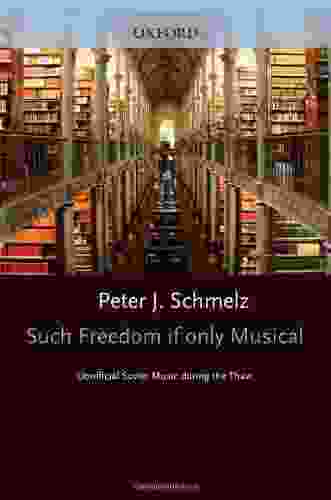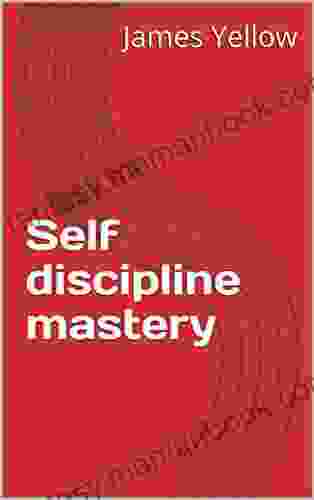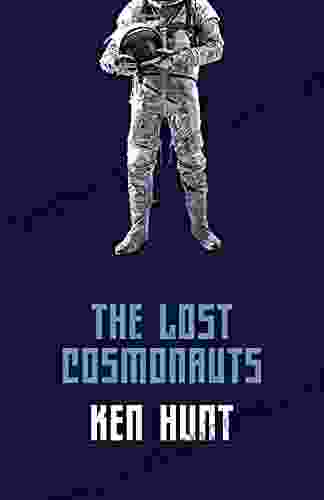Unofficial Soviet Music During the Thaw: A Voice of Dissent and Renewal


The post-Stalin era in the Soviet Union, known as the "Thaw," witnessed a stirring of cultural and artistic expression. Amidst the political reforms and liberalization, a vibrant and rebellious youth movement emerged, accompanied by an explosion of unofficial music that challenged the official Soviet narrative and sowed the seeds of dissent. This article delves into the history and significance of unofficial Soviet music during the Thaw, exploring its origins, genres, themes, and impact on Soviet society.
The Origins of Unofficial Music
The origins of unofficial Soviet music can be traced back to the late 1950s, as Nikita Khrushchev's "Thaw" policies gradually eased the repressive atmosphere of the Stalinist era. Young people, emboldened by a newfound sense of freedom, began to explore alternative forms of expression that deviated from the strictures of Socialist Realism. With the availability of Western music on shortwave radio and smuggled records, a growing underground music scene began to thrive in major cities like Moscow, Leningrad, and Kiev.
5 out of 5
| Language | : | English |
| File size | : | 7064 KB |
| Text-to-Speech | : | Enabled |
| Screen Reader | : | Supported |
| Lending | : | Enabled |
| Print length | : | 408 pages |
The Birth of the Bards
One of the most prominent manifestations of unofficial Soviet music was the emergence of the "bards," singer-songwriters who performed their own compositions to small gatherings or in courtyards. These bards, armed with acoustic guitars and poetic lyrics, expressed sentiments of love, friendship, and freedom that resonated with a generation disillusioned with the orthodoxies of the past. Among the most notable bards were Bulat Okudzhava, Vladimir Vysotsky, and Aleksandr Galich, who became icons of the Thaw movement.
Musical Styles and Influences
Unofficial Soviet music during the Thaw encompassed a diverse range of styles, reflecting the eclectic tastes of Soviet youth. While folk music remained a popular base, musicians also incorporated elements of rock and roll, jazz, and chanson. Western influences were evident in the lyrics, which often alluded to themes of love, loneliness, and the search for meaning beyond the confines of Soviet society. Some musicians, such as Yuri Vizbor and Vadim Mulerman, even experimented with electronic music, pushing the boundaries of musical expression.
Thematic Content
Unofficial Soviet music provided a voice for the discontented and marginalized of the Thaw period. The bards' songs celebrated individual freedom, challenged official ideology, and exposed the hypocrisy and double standards of Soviet society. They sang about the horrors of Stalinism, the longing for a better future, and the importance of human connection. Through their lyrics, they became chroniclers of the everyday lives and struggles of ordinary citizens, giving voice to their hopes, fears, and dreams.
Impact on Soviet Society
The unofficial music movement of the Thaw had a profound impact on Soviet society. It provided a safe space for dissent, allowing young people to express their dissatisfaction with the rigidities of the regime. Through their songs, the bards inspired a sense of solidarity and community among those who yearned for change. They also helped to popularize Western ideas and culture, contributing to the gradual erosion of the Soviet Union's cultural isolation.
Official Repression
Despite the liberalization of the Thaw, the Soviet authorities remained wary of unofficial music and its potential to undermine their authority. The bards faced censorship, harassment, and sometimes even imprisonment. Concerts were banned, records were confiscated, and musicians were forced to perform in secret or under assumed names. Yet, these measures only served to strengthen the resolve of the unofficial music movement, as the bards became symbols of resistance and resilience.
Legacy and Enduring Significance
The unofficial Soviet music movement of the Thaw came to an abrupt end in 1968, when the Soviet invasion of Czechoslovakia signaled a return to hardline policies and the suppression of dissent. Many bards were forced to leave the country, while others faced years of persecution and exile. However, the legacy of unofficial music remained alive in the hearts of those who had experienced its transformative power.
In the following decades, the bards' songs continued to be passed down and performed, becoming an enduring symbol of the spirit of the Thaw and a testament to the power of music as a force for change. The legacy of unofficial Soviet music continues to inspire artists and activists in Russia and beyond, reminding us of the importance of artistic freedom and the indomitable spirit of those who dare to speak truth to power.
Unofficial Soviet music during the Thaw was a vibrant and influential movement that defied the cultural constraints of the time. Through their songs, the bards expressed the hopes, fears, and aspirations of a generation that yearned for freedom and a society that valued human dignity. Despite facing official repression, they became symbols of resistance and played a crucial role in shaping the Soviet cultural landscape. The legacy of unofficial Soviet music remains an inspiration to this day, reminding us of the power of art to challenge injustice and inspire social change.
5 out of 5
| Language | : | English |
| File size | : | 7064 KB |
| Text-to-Speech | : | Enabled |
| Screen Reader | : | Supported |
| Lending | : | Enabled |
| Print length | : | 408 pages |
Do you want to contribute by writing guest posts on this blog?
Please contact us and send us a resume of previous articles that you have written.
 Top Book
Top Book Novel
Novel Fiction
Fiction Nonfiction
Nonfiction Literature
Literature Paperback
Paperback Hardcover
Hardcover E-book
E-book Audiobook
Audiobook Bestseller
Bestseller Classic
Classic Mystery
Mystery Thriller
Thriller Romance
Romance Fantasy
Fantasy Science Fiction
Science Fiction Biography
Biography Memoir
Memoir Autobiography
Autobiography Poetry
Poetry Drama
Drama Historical Fiction
Historical Fiction Self-help
Self-help Young Adult
Young Adult Childrens Books
Childrens Books Graphic Novel
Graphic Novel Anthology
Anthology Series
Series Encyclopedia
Encyclopedia Reference
Reference Guidebook
Guidebook Textbook
Textbook Workbook
Workbook Journal
Journal Diary
Diary Manuscript
Manuscript Folio
Folio Pulp Fiction
Pulp Fiction Short Stories
Short Stories Fairy Tales
Fairy Tales Fables
Fables Mythology
Mythology Philosophy
Philosophy Religion
Religion Spirituality
Spirituality Essays
Essays Critique
Critique Commentary
Commentary Glossary
Glossary Bibliography
Bibliography Index
Index Table of Contents
Table of Contents Preface
Preface Introduction
Introduction Foreword
Foreword Afterword
Afterword Appendices
Appendices Annotations
Annotations Footnotes
Footnotes Epilogue
Epilogue Prologue
Prologue Ralpha Rosa P Eustache
Ralpha Rosa P Eustache Mother Bee Designs
Mother Bee Designs Erica Layne
Erica Layne Annie Keary
Annie Keary Ellen Seltz
Ellen Seltz Trinity Tarrow
Trinity Tarrow F Jordan
F Jordan Chris Herring
Chris Herring Katrina Cope
Katrina Cope Sharon Howard
Sharon Howard Antonella Gambotto Burke
Antonella Gambotto Burke Robyn Cairns
Robyn Cairns Matt Shaw
Matt Shaw Robyn Vandersys
Robyn Vandersys Moses Yamtal
Moses Yamtal Korey Watari
Korey Watari Meghan Davis
Meghan Davis Don Bentley
Don Bentley Jackie Alpers
Jackie Alpers Vincent Keler
Vincent Keler
Light bulbAdvertise smarter! Our strategic ad space ensures maximum exposure. Reserve your spot today!

 J.D. SalingerHow to Leverage the Power of Live Online Broadcasts to Tap Into Your Audience
J.D. SalingerHow to Leverage the Power of Live Online Broadcasts to Tap Into Your Audience Branson CarterFollow ·16k
Branson CarterFollow ·16k Kurt VonnegutFollow ·4.5k
Kurt VonnegutFollow ·4.5k Charles DickensFollow ·11k
Charles DickensFollow ·11k Aron CoxFollow ·5.4k
Aron CoxFollow ·5.4k Dan BrownFollow ·2.2k
Dan BrownFollow ·2.2k David MitchellFollow ·4.9k
David MitchellFollow ·4.9k Forrest ReedFollow ·3.6k
Forrest ReedFollow ·3.6k Chance FosterFollow ·9.8k
Chance FosterFollow ·9.8k

 Roland Hayes
Roland HayesFive Unique Eating Plans to Shatter Your Weight Loss...
Weight loss journeys can be a rollercoaster...

 Gustavo Cox
Gustavo CoxThe Small Habits Revolution: How Tiny Changes Can...
Are you ready to...

 Herman Mitchell
Herman MitchellVisit Alook Cool Place In Outer Space Let Explore The...
Welcome to the World Series...

 Hassan Cox
Hassan CoxGaunt's Ghosts Omnibus: A Comprehensive Guide to the Epic...
Prepare to embark on an...
5 out of 5
| Language | : | English |
| File size | : | 7064 KB |
| Text-to-Speech | : | Enabled |
| Screen Reader | : | Supported |
| Lending | : | Enabled |
| Print length | : | 408 pages |














